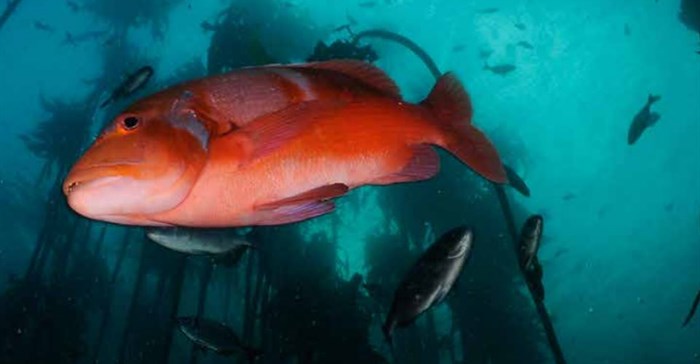Improved management needed to unlock further value from oceans - report

South Africa’s rich and productive coastal waters support thousands of jobs and contribute millions of rand to the national economy each year, with coastal goods and services estimated to contribute 35% to South Africa’s gross domestic product (GDP). But our oceans are under increasing pressure and, if we want to continue to enjoy these benefits, we need to prioritise healthy and robust marine ecosystems as these underpin the ocean economy.
The report, which collates the findings of relevant research from across multiple sectors, offers a snapshot of the state of South Africa’s oceans in 2016. It highlights both the socioeconomic value of the goods and services provided by the ocean and some of the key ecological trends and indicators.
Marine resources overexploited
The report’s ocean scorecard highlights that many of South Africa’s marine resources are currently overexploited, which results in a loss of potential food protein, livelihoods and income, as well the loss of the traditional fishing culture associated with South Africa’s coastal communities.
Illegal, unreported and unregulated (IUU) fishing in particular has decimated many of the once abundant inshore fish stocks. High value abalone and West Coast rock lobster fisheries present some of the most severe challenges – and existing controls cannot balance the powerful social, political and economic factors fuelling high levels of illegal fishing. Consequently, both species are at or near commercial extinction.
Offshore, new threats such as bulk sediment mining of the seabed and the unchecked expansion of fossil fuel exploration pose significant and poorly understood risks to entire ecosystems and associated industries.
Another major issue is the effect of climate change on our oceans including changes in sea temperature, shifts in the distribution of important commercial fish stocks and increased coastal erosion due to the increased frequency and severity of storms.
Best-practice solutions
On the positive side, the report also showcases some of the best-practice solutions that WWF and others are implementing – such as the Southern African Sustainable Seafood Initiative (WWF-SASSI) campaign to encourage consumption of sustainably sourced seafood.
As a result of consumer pressure, many of South Africa’s major retailers and seafood restaurant chains have set ambitious sustainability targets and, according to the report, are well on their way to meeting them.
“All retailers have a connection to our oceans,” says Andre Nel, GM Sustainability for Pick n Pay, the first retailer in Africa to commit to sustainable sourcing. “Issues such as food security and job creation connect us all to the oceans and this report highlights our responsibility to work together in sustaining our largest and most shared resource.”
The report includes a chapter which describes four potential future scenarios depending on the choices we make today. WWF-SA is calling for a number of strategic interventions including:
1. A more integrated approach to ocean management which includes effective marine spatial planning and the prioritisation of identifying and protecting at least 10% of our oceans in Marine Protected Areas.
2. The safeguarding of seabeds which are currently under threat from marine mining without a full understanding of the ecological impact.
3. Enabling participatory co-management of marine resources through the implementation of an ecosystem approach to fisheries management.
4. Empowering consumers and incentivising fisheries improvement through market-based initiatives such as WWF-SASSI.
5. Encouraging cooperation between government, industry and civil society stakeholders through organisations such as the Responsible Fisheries Alliance and the MPA Forum.
6. Supporting community-based stewardship approaches to address the environmental and social challenges facing our coastal communities.
John Duncan, senior manager: Marine Programme, WWF South Africa, comments: “Marine ecosystems underpin human survival and development, from the air we breathe to the food we eat.
“What the future looks like will very much depend on whether we are able to acknowledge and manage humankind’s fundamental dependence on healthy natural systems. We still have much to learn but one thing we have learnt is that knowing the facts alone will not create the change that is needed.
“If we are to build a resilient and prosperous future, urgent action is needed and we need to harness our energy by working with partners across multiple sectors to secure the ocean’s productive capacity and a sustainable future for all.”























